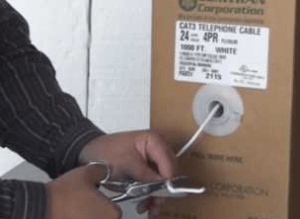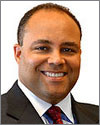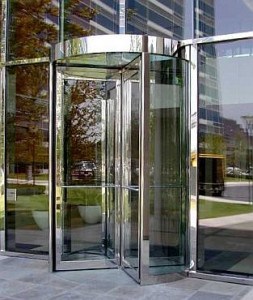
No, don't get up. We've got it.
Want an example of the kind of lazy journalism you get from one of America’s largest news operations, about to become a part of the Comcast family? Look no further than MSNBC’s Wilson Rothman, who shared some serious Net Nonsense in his piece: ‘Open’ Internet just a pipedream.
Rothman apologized in a tweet after publishing the essay, admitting it was “cynical.” But we want to know where the apology is for being wrong on the actual facts.
The author tells readers it’s a Comcast world this winter:
As long as you buy Internet access via cable provider, wireless carrier or telecom, you’re going to have to play — or at least pay — by their rules. They’ll just have to make sure to tell you what those rules are. That seems to be the real gist of the FCC order that was ratified today.
[…]The only people currently getting throttled by their broadband providers are file-sharing pirates who wouldn’t be protected by any net neutrality regulation anyway; meanwhile, wired and wireless broadband networks are increasingly controlled by a smaller, more powerful cadre of competitors.
Tiered pricing has to happen
You can use as much electricity from the power grid as you want, but you have to pay by the kilowatt hour. If you think of the Internet as a utility — and why shouldn’t you? — network management should look something like that. Prices offered by regulated private companies should be competitive and reasonable, but highly metered. Sadly, that means no more flat-fee unlimited access.
[…]I don’t mean to sound cynical, but I come at this from a technology background, not a legal or political one. What I see are all the ways in which “public” access to utilities become profit centers for increasingly massive companies.
After the break-up of the Bells, the phone companies eventually consolidated and worked their way back together like some kind of liquid-metal Terminator. The good news? Instead of a single monopolistic phone company, we have two Leviathans and some smaller fish. Long-distance service used to be their cash cow; now it’s wireless and broadband, and they’re not going to let those slip so easily.
“Give that man a raise,” said Brian Roberts, Comcast CEO.
Seriously, Rothman might come from a technology background, but he sure doesn’t know his way around the broadband public policy debate. Digging into the reasons for today’s broadband mess would require actual reporting.
Rothman suggests Americans are effectively required to accept today’s decision from the Federal Communications Commission. That’s akin to telling Time Warner Cable customers they should have just knelt down to the cable company’s 2009 pricing experiments. Or that North Carolina needed to padlock community broadband networks until they could be sold on eBay to the highest Big Telecom bidder. Or that Frontier can and should get away with a 5GB usage cap.
We said no. You said no. And we won all three of those battles.
Today’s FCC vote has relevance only until the first major cable or phone company (or interested third party) files a lawsuit. The outcome is predictable — the same court that threw out the FCC’s authority earlier this year will do so again, for many of the same reasons. For consumers, that isn’t all bad.
Rothman’s claim that only pirates are victims of speed throttling is demonstrably false, and nothing less than journalistic malpractice. Innocent consumers are routinely throttled on wireless and wireline broadband networks using “network management” technology. Are Clear’s customers all pirates? How about Cricket’s clients? Exceeding an arbitrary amount of usage on these networks guarantees you a spot in the dial-up-like doghouse.
The author also misses the point about increasing consolidation in the Big Telecom marketplace. Cadre? Sure. Competitors? Hardly. Most Americans endure a broadband duopoly for reasonable Internet access — a cable and phone company. Cable and phone companies have quite a deal. They effectively charge around the same price for service and never have to worry about a third cable or phone company entering the marketplace. Cable companies don’t compete with other cable companies. Same for telephone companies. Community broadband networks deliver the only real competition some areas have, which is why Big Telecom wants to ban these upstarts wherever they can. Big Telecom believes Americans should not get to choose an alternative cable company if Comcast delivers terrible service. Consumers living in small communities like Penn Yan, N.Y., live with Verizon DSL, if they are lucky. Outside of the immediate town limits, there isn’t a cable competitor, much less another phone company. That’s the real “take it or leave it” Americans contend with.

Rothman's electric utility analogy is as valid as charging for broadband by the foot.
Why shouldn’t Americans think of broadband as just another electric utility? Because it isn’t. This common talking point/analogy adopted by Rothman’s future employer has as much validity as pricing broadband by how many feet of wire was necessary to install it.
Broadband is neither a limited resource nor a product that requires a utility to purchase raw materials to perpetually generate. His argument works only if a provider “generated” the actual content you consume online. They don’t — they simply transport content from one point to another over a network that becomes enormously profitable once the initial construction costs are paid. Rothman can discover this for himself reviewing the quarterly financials of broadband providers. After billions in profits are counted, it’s clear this is one recession-proof industry that is hardly hurting.
It’s no mistake these analogies always leave out the one utility that is most comparable to broadband — telephone service. You know, the one service that is rapidly moving towards unlimited, flat rate — talk all you want. Providers using the consumption billing argument cannot afford to include phone service in their analogy, because then the ripoff would be exposed. One would think a reporter for NBC News might have managed to figure that one out as well, but no.
The fact is, there is no healthy competition in broadband. You know what that means — high prices for limited service. Rothman seems ready and willing to take whatever Big Telecom wants to dish out, but then his paycheck is about to be paid by one of those companies, so he can afford to be cynical.
Unfortunately for his readers, Rothman is oblivious to the reasons why phone companies have consolidated and consumers are stuck with the results. The recipe:
- A multimillion dollar lobbying effort that includes huge contributions to politicians, astroturf “dollar-a-holler” groups paid to front for Big Telecom’s agenda, and a mess of scare tactics predicting horrible things if they do not get their way;
- A supine media that simply accepts provider arguments as fact, deems the abusive practice that follow as inevitable, and apologizes later for being cynical;
- An uninformed public that decreasingly relies on media companies that also happen to have direct financial interests in the outcome of these public policy debates.
Consumers have more power than Rothman thinks when they take a stand with elected officials. When taking AT&T money becomes more costly than voting for their constituents, elected officials will do the right thing. That takes individuals letting elected officials they are watching them closely on these issues.
Consumers can also tell their local elected officials that the Big Telecom Money Party needs to come to an end. A community-owned broadband network that throws out the online toll booths and creates a network for Main Street instead of Wall Street is the functional equivalent of handing unruly Verizon and Comcast their coats and escorting them the door.


 Subscribe
Subscribe








